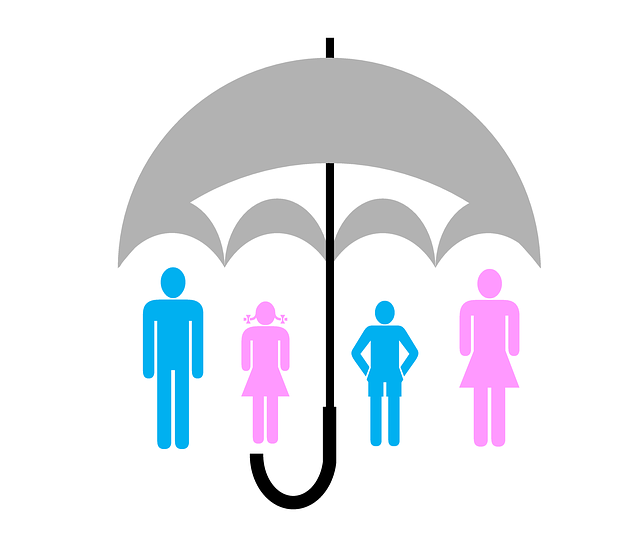Retail businesses face distinct challenges requiring tailored insurance coverage. "What Does Business Insurance Cover?" involves comprehensive protection beyond general liability and property, addressing inventory loss, cyberattacks, and business interruption. Key coverages include property, liability, workers' comp, and business interruption insurance. Specialty options like professional and product liability are recommended. Understanding these covers is crucial for retailers to mitigate risks, ensure continuity, and navigate legal challenges, fostering stability and success in a dynamic environment.
“In the dynamic world of retail, success isn’t just measured by the quality of products or the experience offered—it’s also about navigating unique risks. Understanding what does business insurance cover is essential for retailers looking to safeguard their investments and maintain operational continuity. From property damage and liability claims to employee incidents and business interruptions, this guide explores the comprehensive spectrum of retail-specific insurance needs, providing insights into various coverage options designed to foster retail success.”
Understanding the Unique Risks Faced by Retailers

Retail businesses operate in a dynamic environment, presenting unique challenges and risks that require tailored insurance coverage. Unlike traditional offices or industrial spaces, retail stores deal with high foot traffic, valuable inventory, and often, diverse product lines. This increases the potential for losses due to theft, property damage, or even slip-and-fall accidents.
Business insurance for retailers goes beyond general liability and property coverage. It also includes specific protections for inventory loss, which can be particularly vulnerable to theft or damage. Additionally, retail operations may face risks related to data security and cyberattacks, given the reliance on point-of-sale systems and customer data storage. Understanding these risks is key to selecting comprehensive business insurance that ‘what does business insurance cover’ for retailers, ensuring they are protected against potential financial losses.
Types of Business Insurance Coverage for Retail Businesses

Retail businesses face unique risks and challenges, which is why comprehensive business insurance coverage is essential. Understanding what business insurance covers for retailers is crucial in mitigating potential losses. The primary types of coverage include property insurance, which protects physical assets like buildings, inventory, and equipment from damage or theft; liability insurance, covering legal expenses and damages related to injuries or property damage sustained by customers or employees on premises; and workers’ compensation insurance, which provides financial protection for employees injured on the job.
Additionally, business interruption insurance is vital as it offers financial support during temporary closures due to covered events, ensuring retailers can recover quickly. Professional liability insurance protects against claims of negligence, while product liability coverage shields against lawsuits related to defective goods sold. Retailers should also consider specialty coverages tailored to their specific operations, such as loss of revenue or extended warranty coverage, to ensure they are adequately protected in all aspects of their business.
Property Damage and Loss Protection

Business insurance for retailers includes protection against unexpected events that could lead to property damage or loss, which is a crucial aspect often overlooked by business owners. What does business insurance cover in this regard? It offers financial safeguard against perils such as fire, theft, vandalism, and natural disasters. This coverage helps retailers replace or rebuild their inventory, fixtures, and equipment, ensuring continuity of operations despite unforeseen circumstances.
For instance, a retail store may be protected from significant financial losses due to a burst pipe causing water damage to the building and its contents. Property damage and loss protection also extends to covering business interruption costs if a retailer needs to close temporarily while repairs are made. This ensures that even during challenging times, businesses can maintain stability and recover more swiftly with adequate insurance coverage.
Liability Insurance: Protecting Against Legal Claims

Liability insurance is a crucial component of business insurance for retailers, offering protection against potential legal claims and their associated costs. This type of coverage safeguards businesses from financial loss in the event that someone suffers an injury on their premises or as a result of their products. It can include medical expenses, legal fees, and any damages awarded by a court.
Understanding what business insurance covers, including liability, is essential for retailers to manage risks effectively. By having the right policy in place, businesses can navigate legal challenges more confidently, ensuring they are protected against claims that could impact their financial stability.
Coverage for Employee-Related Incidents

Retail businesses are vulnerable to a range of risks, many of which involve employees. This is why comprehensive business insurance is essential—it provides a safety net that can protect retailers from significant financial losses. When it comes to employee-related incidents, the right coverage can help manage and mitigate potential issues.
Business insurance policies typically cover workplace accidents, injuries, or even claims of discrimination or harassment. These incidents can lead to costly legal battles and medical expenses. By ensuring you have adequate coverage for such events, retailers can safeguard their finances and maintain a positive work environment. What does business insurance cover? In many cases, it offers protection against employee-related lawsuits, as well as the costs associated with investigating and resolving these issues.
Business Interruption and How It Keeps Your Retailer Operational

Business interruption is a critical aspect of business insurance for retailers, designed to keep your operations running smoothly even during unforeseen events. This coverage compensates for lost income and additional expenses incurred when your store has to close temporarily due to covered risks like natural disasters, civil unrest, or equipment failures. It ensures that you can continue to pay essential bills, maintain staff salaries, and meet financial obligations while your business recovers.
Understanding what does business insurance cover is key. This specific component of the policy keeps your retailer operational by providing funds for continued expenses during a disruption. Whether it’s a sudden closure due to a fire or an unexpected surge in demand that strains your resources, business interruption coverage bridges the gap, helping you navigate challenging periods with financial stability and resilience.
Extra Expense and Increased Costs During Difficult Times

Retail businesses face unique challenges, and difficult economic times can exacerbate these issues. When a retailer has to close temporarily due to a covered event, such as a natural disaster or civil unrest, their fixed costs still need to be met. This is where Business Insurance steps in with Extra Expense coverage. It helps cover the additional costs incurred during these trying periods, ensuring retailers can keep their heads above water.
What Does Business Insurance Cover? This includes not just the physical damage or loss of inventory but also the extra expenses born during the recovery process. For instance, increased cleaning and restoration costs, temporary relocation expenses, and extended business interruption coverage are all part of what retail businesses should expect from comprehensive insurance.
Examples of Exclusions in Retailer Insurance Policies

Business insurance for retailers is designed to protect against a wide range of risks, but it’s crucial to understand what’s covered and what isn’t. While policies vary by provider, many retailer insurance policies commonly exclude certain events and circumstances. For instance, personal property damage or loss due to natural disasters like floods or earthquakes might not be covered. This also includes damage caused by war, terrorism, or civil unrest, which often require separate coverage. Additionally, business interruption due to strikes or labor disputes is typically excluded, as are losses stemming from faulty products or incomplete/inaccurate data backup.
Another common exclusion is liability for injuries or damages sustained by employees during the course of their employment. Employer’s liability insurance usually stands alone and isn’t part of standard retail coverage. Moreover, policies often exclude loss or damage to merchandise in transit unless specific shipping or transportation coverage is added. Understanding these exclusions is vital for retailers to make informed decisions when selecting business insurance that aligns with their unique needs and risk profile.
Building a Comprehensive Insurance Strategy for Retail Success

Building a robust insurance strategy is an integral part of any successful retail business. Understanding what does business insurance cover is the first step in safeguarding your operations, employees, and customers against potential risks. Retailers face unique challenges, from property damage due to theft or natural disasters to liability claims resulting from slips and falls or product defects. Comprehensive business insurance aims to mitigate these risks by offering various coverage options tailored to retail environments.
A well-crafted insurance strategy involves assessing specific needs, such as property insurance to protect physical assets, general liability insurance for customer injuries, and workers’ compensation for employee-related claims. Additionally, retailers should consider specialized coverages like inventory insurance to safeguard their stock and business interruption insurance to ensure continuity during unforeseen events. By combining these elements, businesses can create a comprehensive safety net, ensuring financial resilience and peace of mind in an ever-changing retail landscape.
